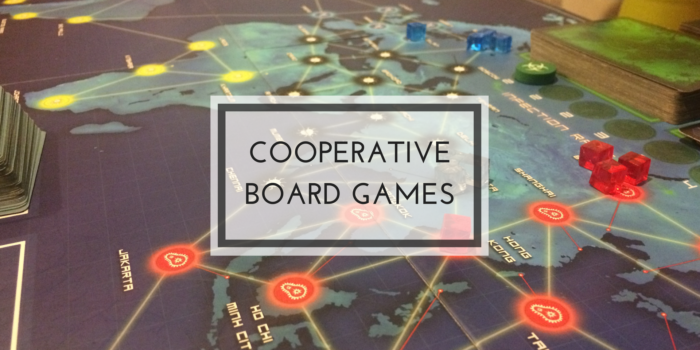Today I want to write about a topic which I’m sure will interest my fellow bloggers and entrepreneurs: wealth psychology.
Last week, my mum and I had the pleasure of attending a 3-day Entrepreneur’s Bootcamp in Brighton, organised by Andrew Reynolds.
Back in January I attended a workshop which focused on removing blocks to financial abundance and was largely based around the Law of Attraction and just 6 months later this Entrepreneur’s Bootcamp has given me so many opportunities to bring my financial dreams into fruition. A coincidence? I don’t think so.
I was even lucky enough to meet Andrew Reynolds himself and he gave me the opportunity to offer YOU a copy of his book for FREE! Just click here to get your FREE copy of Copy This Idea by Andrew Reynolds.
During the course of the 3 days we also learned a lot about wealth psychology and I would like to attempt to pass that information onto you, my friends.
Wealth Psychology & the Law of Attraction
At first, the advice given by Andrew Reynolds would have been familiar to anyone with any knowledge of the Law of Attraction. There was talk of creating a ‘vision board’ or a ‘vision book’ and we were told that if we believe, the ‘how to’ will turn up. We were encouraged to write a 5-year plan (e.g. By August 2020 I will have £1million in the bank) and were told:
Do something today that your future self will thank you for.
Wealth Psychology: Detach your emotions
We were later told that:
True wealth is achieved when you can decouple your emotions and making money.
I can definitely see how this applies to trading, but does it apply in a more general sense too? I’m not sure. What are your thoughts? I have always felt that my business should be something I love and am passionate about – a heart-based business that would allow me to make a change for good in people’s lives and in the world as a whole – but maybe that’s not how the big money is to be made. I think I’ve been making it too complicated. Perhaps it is better to forget my idealistic views and focus solely on the act of making money. There are certainly plenty of ways to help people if you have money! Indeed, we were later told:
True wealth is the ability to own your time, then give a bit back.
Wealth Psychology: Limiting beliefs
Limiting beliefs were also mentioned. (I have plenty of those). For this topic, we were referred to the work of Robert Dilts in identifying and changing our limiting beliefs and expectations. The beliefs we have about our ability to do something impact the amount of action we put into doing it. Thus, our results confirm our initial beliefs. We were advised that belief transference occurs when we spend time with positive people who are already successful in doing what we ourselves want to do, for the mind doesn’t really believe what it hears – it mostly believes what it sees. Seeing really is believing, I guess.
Examples of good beliefs about wealth are, “The more you give, the more you get,” and, “I am solely responsible for my financial destiny.”
Know that a 6- or 7-figure annual income is entirely possible. If others have done it, then so can you. Change your mindset. Know you can do it, then take action.
Wealth Psychology: What is holding you back?
We were later asked, “What’s your thing that is holding you back?” Examples may be, “I’m not pretty enough,” or, “I’m not clever enough.” Everyone has a number on their head of how much money they think they’re worth. What has to happen in order for you to feel a certain way – successful, for example? It is only when we interrupt our perception of ourselves that things change. We were asked to write down 5 words that we would use to describe ourselves, consciously selecting language that supports ourselves as already grateful and living wealthy-making rich decisions, for example, serious, decisive and committed. (By the way, note the difference between ‘interested and ‘committed,’ for ‘interested’ equates to failure whereas commitment guarantees success). Then, we must ensure that our behaviour is consistent with our perception of our identity.
Wealth Psychology: Focus on giving
Some good advice followed – to stop asking for business and to start giving first. This very much resonates with a post I wrote recently entitled The Law of Giving and Receiving, but in this instance it was suggested that we achieve this by turning the sales process into an educational experience for the customer. After all, joy does not come from consumption, but from creation. We should always create more than we consume. As Zig Ziglar said:
You can have everything in life you want, if you will just help other people get what they want.
Wealth Psychology: Do you have a big enough dream?
We were told that whenever we participate in anything that is in line with our higher values, we don’t need motivation, but if you are still a little lacking in the motivation department it may just be that you need a bigger dream! The reason we don’t have the money that we could have is generally because we don’t have a big enough reason. Focusing on who we are letting down other than ourselves can help to kick us out of the comfort zone. We were told:
Make your goals bigger than your problems. Make your goals so big that your problems seem insignificant by comparison.
Wealth Psychology: Stop trading your time for money!
Above all, we must stop trading the most precious commodity in our lives – our time – for money.
Just lately I have been pulled at a hurtling pace into all things spiritual and the more that I realise that that is where my attention should be, the more it irks me that so much of my precious time on this earth plane is taken up with the necessity to make money in order to just survive, let alone be able to afford any little luxuries.
In other words, we should concentrate on building passive income streams. That’s what this year is going to be about for me. I am determined to finally stop trading my time for money. I want it and I have written it down, and I am told that if I write it down it will happen! Here’s to a happy, healthy and wealthy year to come!












A long time ago I gave up money to gain time. Time with my husband and family. Never regretted making that decision.
Like Candy, I made the same tradeoff. In the end, the Divine made my life work out exceptionally well so far!
Hi, and thank you for your comments. I totally agree. I haven’t worked more than 2 or 3 days a week for about 15 years now because I think time with my family is just so much more valuable. In this instance though, when I spoke of stopping trading my time for money, I was referring to creating passive residual income streams. For me, that’s the ultimate financial goal.
“Do something today that your future self will thank you for.” I love this. Right now I am working on a path to more passive income and getting rid of things that are time sucks.
I love this. It’s all about balance. You have to have your priorities and know what really matters.
Love these takeaways. Such great and insightful quotes that I use to guide my life!
There is only one way to stop trading time for money, I believe, and it’s not even absolute. Leverage income. Even so, work has to be put in. So in a sense, what I think you really want is to increase the value of your time. As your value increases, it is also charting a path into a career or profession that you love. Well, either that or you learn how to love something that gives you the money.
The law of attraction and others are all there to open our minds. It is in seeing from different perspectives that we learn to see opportunities and at the same time, filter out noises and focus on what is real, what is productive, and what is worthwhile.